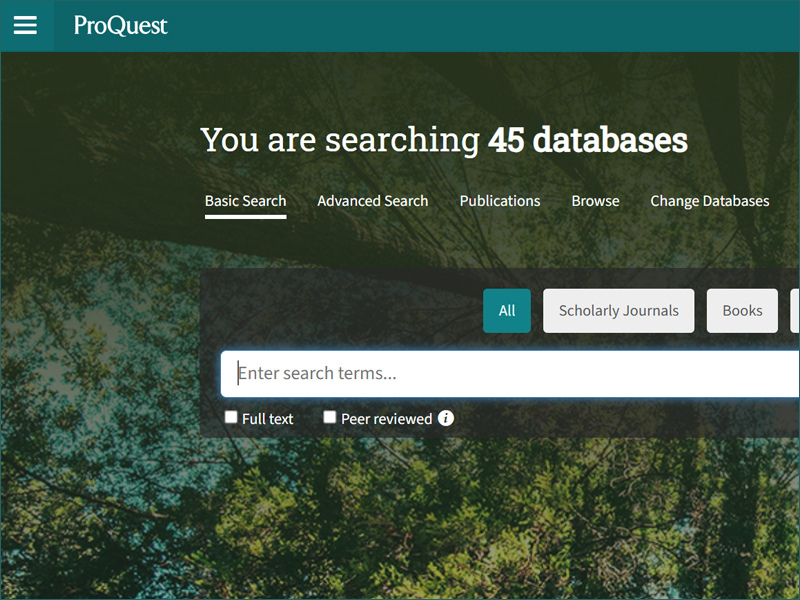
New This Year: Vastly Expanded ProQuest Content, Plus Text and Data Mining
Universitywide
ProQuest is a well-established and diverse research platform, offering extensive collections of academic journals, ebooks, historical newspapers, and other primary source materials, as well as the world’s largest collection of dissertations and theses. Whereas Rutgers students, faculty, and staff previously had access to select ProQuest databases, they can now access ProQuest’s full catalog of academic research and primary source databases, as well as a powerful research tool, via the Rutgers University Libraries databases portal.
Beginning later this month, the Libraries will offer workshops (such as this one on October 20) to help the Rutgers community take full advantage of the latest offerings.
These are the new ProQuest resources, acquired by Rutgers University Libraries just ahead of this academic year, that are now available for student, faculty, and staff use:
- TDM Studio, a text and data mining tool that helps researchers and students analyze massive collections of text, such as newspaper articles, academic journals, and dissertations. This tool makes it possible to scan millions of articles, spot trends, and generate insights, such as how often a topic is mentioned over time or how the tone of news coverage varies among geographic regions.
- ProQuest Central Premium, a multidisciplinary database that contains academic and popular journal publications across all major subject areas.
- ProQuest Digital Collections, which contain six centuries of essential primary sources in history, anthropology, global studies and international relations, literature, and the arts. Among the sources available are archival collections, magazines, manuscripts, musical scores, and historic recordings.
- ProQuest Historical Newspapers: Global, a collection of over 200 premier newspapers from the U.S., Canada, and international regions, dating back to each publication’s first issue and presented in the original print formats. Articles, photos, obituaries, advertising, and editorials are displayed in their original context.
In addition, ProQuest Research Assistant, an integrated academic AI companion with continually evolving features, helps researchers and students work more effectively with the platform’s curated content.
“This investment in a premium academic resource reflects Rutgers’ commitment to empowering world-class scholarship,” said Consuella Askew, vice president for university libraries and university librarian. “ProQuest’s expansive, high-quality content — paired with cutting-edge AI and data mining capabilities — will catalyze innovation in research, teaching, and learning across our diverse academic landscape.”
Accessing ProQuest Resources and Additional Support
To explore the available ProQuest collections, visit libraries.rutgers.edu/databases and either search for “ProQuest” or browse alphabetically. Once you have identified the resources you need, log in with your Rutgers Net ID for full access.
The Libraries will offer Introduction to TDM Studio, an online workshop led by Francesca Giannetti, digital humanities librarian, on October 20 and again on October 23. More information on using TDM Studio is also available via this ProQuest LibGuide, and personalized onboarding sessions can be scheduled with ProQuest.
Additional future workshops can be found on the Rutgers University Libraries calendar of events.
More information on ProQuest Research Assistant can be found in this Rutgers University Libraries LibGuide, which provides an overview of generative AI features in the Libraries’ major databases and platforms.
For the Media
For questions about this story, please contact: